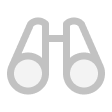Propranolol
Uses
Propranolol Uses Propranolol is used in the treatment of angina (heart-related chest pain), arrhythmia, heart attack, hypertension (high blood pressure), anxiety, tremors, glaucoma, heart failure, migraine, prevention of migraine, and pheochromocytoma.
How it Works
How Propranolol works Propranolol is a beta blocker that affects the body’s response to nerve impulses, particularly in the heart. It slows down the heart rate and facilitates the heart's ability to pump blood throughout the body. This action helps prevent arrhythmias, stabilizes blood pressure, and reduces the risk of heart attacks. Additionally, it dilates blood vessels to improve blood flow, thereby preventing angina and migraines. The precise mechanism by which it prevents tremors is not fully understood, but experts believe that Propranolol may help block nerve impulses to the muscles responsible for tremors. It also counteracts the effects of the chemical messengers, adrenaline and noradrenaline, produced by the brain, which are known to increase heart rate and contribute to feelings of anxiety. Thus, Propranolol can aid in managing anxiety. In the treatment of pheochromocytoma, Propranolol may be administered to inhibit the action of high levels of adrenaline, reducing the risk of dangerously high blood pressure during surgery to remove the tumor.
Side Effects
Common side effects of Propranolol include slow heart rate, nightmares, cold extremities, sleep disturbances, and fatigue.
Expert Advice
- Propranolol is not the first-choice treatment for high blood pressure according to the latest guidelines.
- It may mask the symptoms of low blood sugar in individuals with diabetes.
- Regularly monitor blood sugar levels.
- To reduce the risk of dizziness or fainting, rise slowly after sitting or lying down.
- Exercise caution while driving or engaging in activities that require concentration, as Propranolol can cause dizziness and sleepiness.
- Inform your doctor if you experience:
- Increased swelling around the legs or ankles
- Sudden weight gain
- Sudden shortness of breath
- These may be symptoms of heart failure.
- Do not discontinue the medication abruptly without consulting your doctor.
- Propranolol is effective in treating various heart conditions, including:
- Chest pain
- High blood pressure
- It is also used for several non-heart conditions such as:
- Tremors
- Anxiety
- Migraine
Related Medications
₹39.4
MRP ₹30.3
₹20.9
MRP ₹20.4
₹14
MRP ₹20.4
MRP ₹20.4
₹39
MRP ₹28.9
₹28.5
MRP ₹28.9
MRP ₹25.1
₹51.6
MRP ₹50
₹28
MRP ₹50
MRP ₹50
₹16.5
MRP ₹28.9
₹42
MRP ₹45.3
MRP ₹30.3
₹27
MRP ₹49.7
₹47
MRP ₹49.7
₹35
MRP ₹49.7
₹45.4
MRP ₹49.7
MRP ₹49.7
₹33.6
MRP ₹49.7
₹38
MRP ₹49.7
₹64
MRP ₹49.7
₹95

₹60

₹11.3

₹14.4

Flat ₹100 off on first app order | Use Code: APP100 |
Flat ₹100 off on first app order
USE CODE: APP100

Download Now